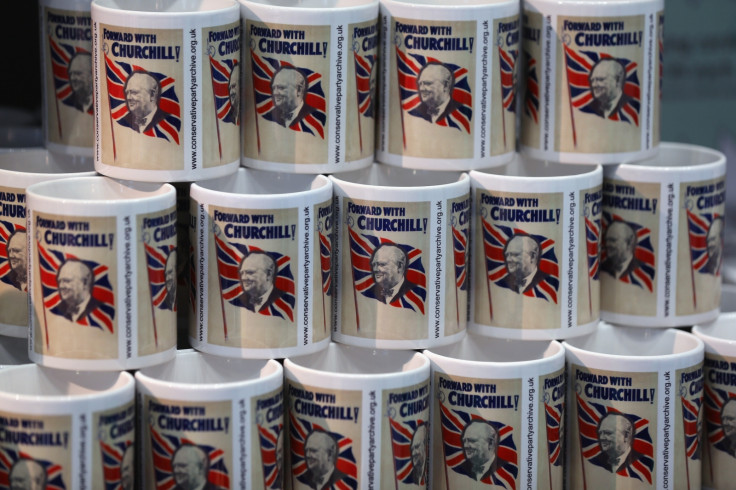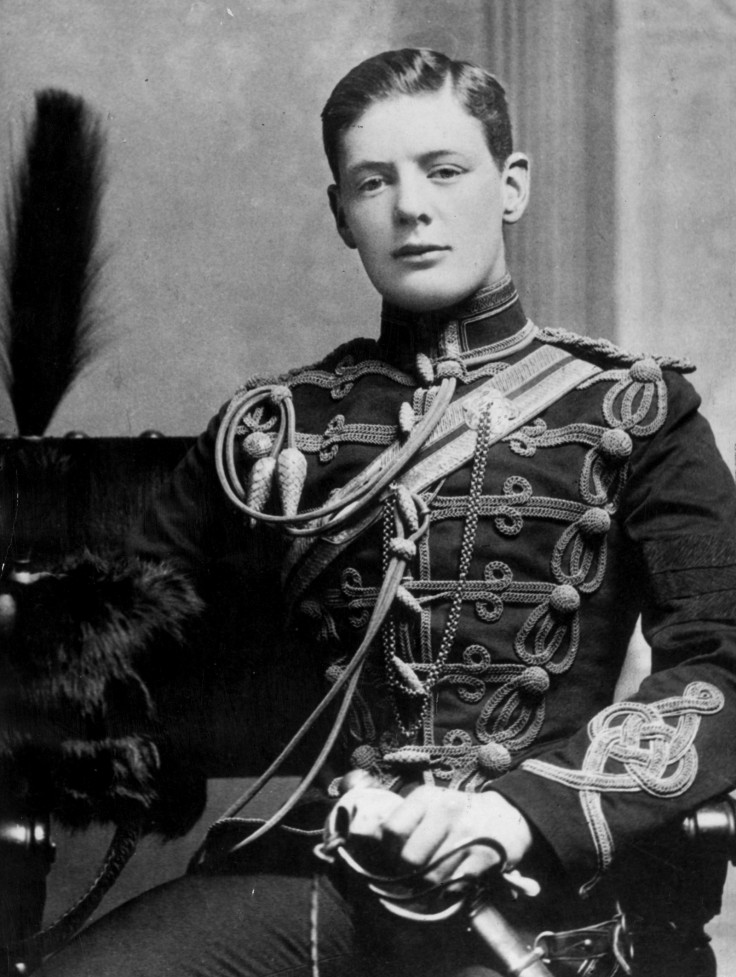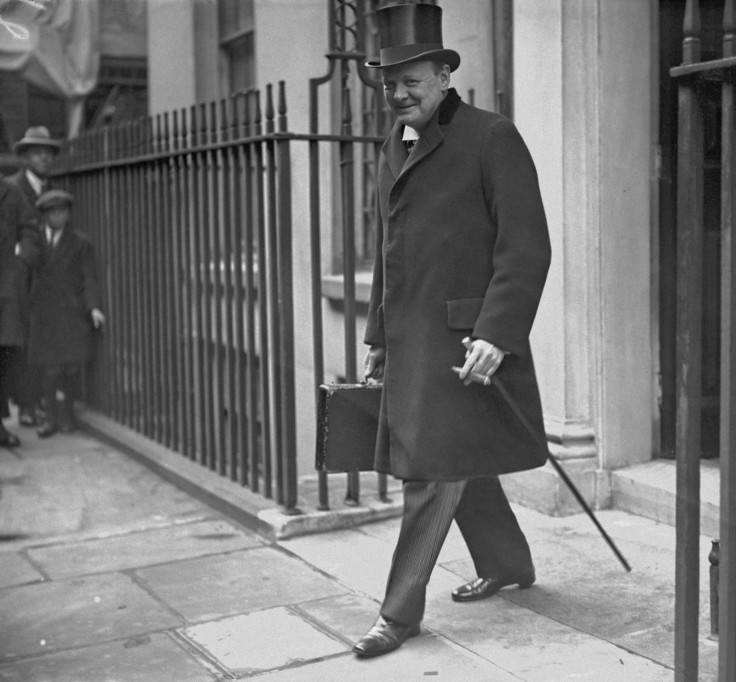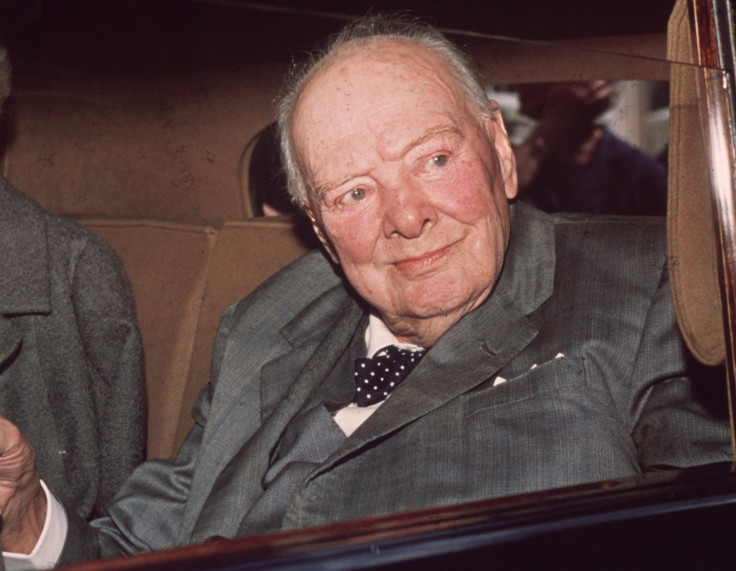Winston Churchill: 50 years after his death the myth lives on

When Sir Winston Churchill died on 24 January 1965, there was a national outpouring of grief and nostalgia for a man who led old Britain against the Nazis so a new one could be reconstructed in its ruins, free from the tyranny of European fascism.
Churchill's death marked a moment of passing from the old world to the new; a loosening from Edwardian stiffness to the social liberation of the 1960s.
And so, also, the Churchill myth we know today was born, a cult of personality built around a man remembered almost exclusively for his status as a war-time hero, despite the length and variety of a complex and controversial career that has, for the most part, been forgotten by the public.
Churchill's jowly, bulldog face has been appropriated for merchandise and advertising; his hero status used by politicians who want to associate themselves with his stature in the British public mind; his many memorable quotes repeated on posters, in books and in articles.
It is obvious perspective has been lost. This is perhaps most reflected by Churchill's clear victory in a comprehensive 2002 poll of the country by the BBC on who is the greatest Briton to have ever lived.
A complex man with rough bits and bumps has been chiselled down and buffed, processed by public opinion and simplistic pro-Churchillism. And this is despite a forest's worth of books available on Churchill's life, which detail everything – the good and the bad.
"You've got to accept really that he was a controversial figure in his own time and that the views that people take of him are very much influenced by their own personal values, their own perspectives and their own experiences," Professor Richard Toye, a historian at the University of Exeter and author of three books on Churchill, told IBTimes UK.
"I have sympathy with those people who had very dreadful experiences during the war and partly as a consequence have become extremely attached to the memory of Churchill."
Churchill's image
The Churchill we know best is the cigar-puffing Dickie-bowed man of the V-sign, who rallied the British to war against Hitler's fascist threat with rousing speeches promising to fight them on the beaches, a genuine patriot who stood up to be counted in his country's hour of need.
That is why the incumbent Conservative prime minister, David Cameron, said Churchill is his favourite ever leader of Britain. And it is why far-right nationalists, such as the BNP and Britain First, often use the power of Churchill's image in their propaganda.
This image and reputation is also fodder for historical film-makers who make thousands of hours of television for the many WWII obsessives in society, who savour every last factlet about every minor battle that went on and the men who lead the various campaigns.

"I think it's very natural that TV and radio documentaries and dramas and so on feature the most dramatic period: his standing against appeasement in the 1930s, World War Two and the Battle of Britain and so on," Toye said.
"In fairness to the media, there is quite a lot of coverage and documentaries that cover his previous life and his later life.
"But there's so much to assimilate about his career that a lot of people just aren't aware, for example, of that fact that he fought in three minor wars basically before he was the age of 25. Or the fact that he was imprisoned in South Africa and escaped.
"These things come as a surprise to a lot of people, although obviously at one level they're perfectly well-known facts. It's not difficult to find out. It's obviously difficult for people to get their heads around the full complexity of what was a very long and very complex career."
A complex life
Churchill's life and career from before the late 1930s is far-less well known and acknowledged, either through ignorance or a refusal to accept a man regarded as a national hero had also done many unheroic – even barbaric – things. He was not always a popular man.
Consider his time with the Hussars marauding around Africa and the Middle East on horseback at the turn of the 20th century, where as a young officer he violently upheld British rule in the colonies.
The disastrous Gallipoli campaign of WWI was launched on his orders as First Lord of the Admiralty, after which he had to resign from the government and went to fight on the Western Front. Over a quarter of a million Allied lives were lost during Gallipoli.

Then there was his staunch opposition to greater autonomy for India and hatred of independence campaigner Mahatma Gandhi, who he said "ought to be lain bound hand and foot at the gates of Delhi, and then trampled on by an enormous elephant with the new Viceroy seated on its back".
Acknowledge the catastrophic introduction of the Gold Standard while he was chancellor of the exchequer in 1925, which helped lay the ground for the General Strike a year later. And his advocacy of eugenics – a not uncommon view in the early 20th century – and the sterilisation of the "feeble minded" should not be forgotten.
"You have to be aware that throughout his career and since, there's been a diversity of opinion. What we lack for the period before the late 1930s is we don't have any opinion polls, so saying how popular he was is very difficult to gauge," Toye said.
"It's certainly true that throughout the 1930s he had probably alienated quite a lot of people. He certainly had alienated lots of people in the population through his actions during the General Strike, for example.
"I suppose I would say that certainly there has been a tendency to airbrush away the memories of that undoubted unpopularity. But I suppose that even now you actually find that, although there are large numbers of people who are pro-Churchill, you will also find a small minority who are actually very hostile to him and quite vocal about that.
"In fact they raise many of these issues such as Gallipoli and the General Strike and so on and say that he was a terrible politician.
"In a sense I think that the divisions that he generated within his lifetime still continue to an extent to the present day, although the media coverage of him might mislead you in that respect, to think that there was unanimous support for him."
Machine guns
It was during the General Strike in 1926, when millions of workers downed tools in a fight for better wages and working conditions, that the worst of the impatient and authoritarian Churchill came through. He was, after all, a highborn man of the British imperial elite.
Under the influence of a reactionary and boorish Churchill, an army officer more than a politician at heart, prime minister Stanley Baldwin ordered the military to face off with the striking dock workers in London's impoverished East End.
An account of the situation in historian Frank McLynn's book The Road Not Taken: How Britain Narrowly Missed a Revolution said 105 army lorries packed with grenadier guards – all armed with 150 rounds each – were sent to secure the dockyards, which were being blockaded by striking workers.

By the next day, a further 437 truckloads of armed troops had been deployed to the Docklands, where they met no resistance from the strikers above jeers.
"Churchill exacerbated the situation by announcing that the military now had enough artillery assembled to kill every single living soul in every single street in the capital and that troops had carte blanche to open fire; in effect they would have a licence to kill," McLynn wrote.
"It was through his influence that the soldiers at the dockside trained machine guns on the watching crowd. This was too much for George V, who protested to Baldwin. Churchill was quietly reprimanded and word went out that there were no 'shoot to kill' orders."
Given Churchill's aggressive position on the General Strike, which he feared could spark a Bolshevik revolution in Britain after what had happened in Russia less than a decade earlier, it is difficult to see how after death he has emerged unblemished as a national hero.
Toye said you have to remember that, in the end, nobody died during the General Strike, which was eventually resolved politically.
"Clearly, there were lots of people who did come out on strike, but not all of them were committed to the General Strike and were doing it essentially because they were told to by the union leaders," he said.
"I think that also the Conservative government – and this doesn't necessarily just apply to Churchill – successfully surmounted that crisis and could present itself as having preserved law and order and having faced down a strike which it claimed was not only illegal, but a threat to the national order.
"So that could be portrayed as a positive. It's obviously very unlikely to be viewed as a positive by anyone who is a really very active or committed trade union leader, but clearly there were lots of people who didn't fall into that category."
After World War Two
Between WWII and his death two decades later, Churchill's reputation faded again. He lost the 1945 election despite having just led the country to victory against Hitler. The public, it seems, saw him as a warrior more than a politician.
A particular man for a particular situation: war. Churchill's rival, Labour leader Clement Attlee, was seen as the man who could lead Britain out of the war and into the reconstruction of society with his Keynesian plans for massive public investment, such as the creation of the modern welfare system and the NHS.
Churchill lost a second election to Labour in 1950, though he narrowed their lead significantly. Nearly two years later, Attlee called another election in order to grow his majority. Churchill triumphed with a majority of just 26, though this has been put down more to a worsening Labour offering than anything else.
There was little of significant note during ageing Churchill's last tenure. After just three years, and aged 80, he suffered a stroke – but continued as prime minister until his resignation in 1955. His age had gotten the better of him and it was time to retire from politics.
"It does not seem a long time since Winston did all the talking at every meal; now he sits all huddled up in silence; he can no longer hear what is being said, he is outside the round of conversation and not a part of it," Churchill's doctor, Lord Moran, wrote in his diary in 1955.
Churchill, a natural born fighter, battled on against the inevitable until it happened in January 1965, aged 90, a few days after suffering a stroke. After his death was announced by the BBC, crowds gathered outside his home at Hyde Park Gate. Amid the mourning and reflection, a myth was born.
He was given a state funeral and millions of Britons either turned out on the streets or watched on television as his coffin was taken through London from Westminster Hall, where it had lain in state, to St Paul's Cathedral for the service.
Churchill's coffin was then taken to a barge on the river, where as it sailed past the docks, cranes lowered in respect. He was taken to a humble grave at St Martin's Church in Bladon, Oxfordshire, where his family are also buried.
Debates
In fairness to Churchill, there are debates within the criticism of his pre-WWII career. On the Gold Standard decision in 1925, economist John Maynard Keynes did not consider Churchill personally responsible for the terrible move, which crushed British exports and caused serious harm to the economy, instead regarding him as a hostage to poor advice.
And after Gallipoli, Churchill accepted responsibility for the disastrous campaign, resigned and actively sought out frontline service during WWI, often venturing into No Man's Land to put himself in real danger of death like the millions of others fighting in the war. Undoubtedly a man of principle, he was not an armchair general. He was a soldier willing to lead from the front.

As a Liberal MP in the early 1900s, Churchill was also behind the creation of an early social security system in Britain under David Lloyd George's 1909 "People's Budget", which raised taxes on the rich to fund spending on the poor.
It was not all good and it was not all bad. For Toye, Churchill was a man who "liked adventure and liked excitement and always wanted something to be going on".
"So if there were quiet moments when nothing very much was happening, he would spend his weekend drafting a memo and would inflict upon his colleagues in a fleet of excitement on the Monday morning," Toye said.
"He could be kind of an infuriating person to work with because he was perpetually having these fits of enthusiasm. Some of which were in favour of sensible things that needed to be done. Others which were misconceived. So he was somebody who had this quest for perpetual excitement.
"Somebody once said of him that he had ten ideas a day, one of which was a good one but he didn't know which one it was."
Emotive perceptions
The modern populist perception of Churchill, which derives from WWII, serves as a cultural anchor for Britons. He represents many of the values people consider to form part of the British identity.
Churchill was patriotic, principled and driven by a sense of duty. He was a flawed but strong character. He was the underdog, like Britain at the start of WWII, who went on to win. He represents nostalgia for a mythical past Britain that many yearn to return to in the chaos and unknowns of the present.
But Churchill is like any other historical figure. Interest will fade as those who knew him, lived under him and fought for him, and the immediate descendants of those people, pass on. Churchill will possibly go the same way as the Iron Duke of Wellington.
When that happens, when emotion detaches and there is an opportunity for a sober, objective look at Churchill's life, career and legacy, will we restore some perspective?

"In a sense if people didn't feel emotive about it, and if they didn't have these strong feelings about it, there wouldn't be the level of interest, so there wouldn't be this much discussion," Toye said.
"So the point where everybody at the point of discussion is sober and unemotional and rational about it, well that's probably at the point where everyone has lost interest in it."
Then again, perhaps we are already starting to get a fuller picture of Churchill. Some are using the anniversary of his death to pass comment on his career and character. It is an opportunity for reflection and education.
Jeremy Paxman, the outspoken former BBC journalist and author of several books on British history, described Churchill as "a ruthless egotist, a chancer and a charlatan at times", adding he would be "unelectable" in today's politics.
"He was a man of his time, a parliamentary one-off who'd be suffocated by the spinning and posturing that pass for politics today," Paxman told the Radio Times magazine.
"Being both good and bad, adequate and inadequate, selfish and public-spirited is just being human."
Maybe that is it. We just have to kill the myth to make Churchill human again.
© Copyright IBTimes 2025. All rights reserved.




















